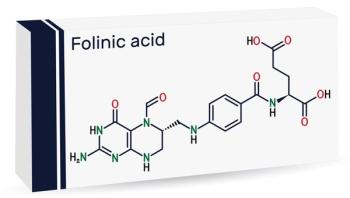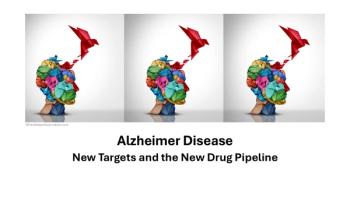
Measles vaccine coverage must reach 93% to maintain herd immunity but in 1 postelimination outbreak, the level reached only 80% in school-aged children.

Measles vaccine coverage must reach 93% to maintain herd immunity but in 1 postelimination outbreak, the level reached only 80% in school-aged children.

The annual meeting of the American Academy of Family Physicians is a unique chance to choose continuing education on just about any topic a family physician could imagine.

Public health officials across states and regions are "thinking on their feet" about how best to protect public health given the upheavel in federal vaccine policy, Moore said.

The European Commission granted marketing authorization for the Lilly mAb based on data from the phase 3 TRAILBLAZER-ALZ 2 and 6 clinical trials.

Vaccines for respiratory syncytial virus were found both safe and effective across 100,000 participants and, critically, for older adults and infants.

Adult vaccine-preventable diseases cost $26.5B annually in the US. See key gaps, barriers, and strategies primary care physicians can use to boost immunization.

"The foundation of science in the new iteration of the ACIP is uncertain at best," William Schaffner, MD, observed. He is concerned about where that might lead.

Moore, a past voting member of the ACIP, is unsure how the CDC will respond to adding "speculative concerns" to a piece of information given to every person who recieves a vaccine.

Moore, president and CEO of immunize.org, has deep roots in public health and advocacy, vaccine program implementation, and immunization education.

Missing a first screening mammogram was associated with a 53% greater risk of stage III breast cancer and a 40% higher risk of mortality from the disease.

The FDA has initiated approval of leucovorin calcium tablets for children with cerebral folate deficiency, which can manifest with autistic features. What is it?

New data will be shared from the PATHFINDER 2 study in asymptomatic patients and the SYMPLIFY study in patients experiencing symptoms.

The study found that although PREVENT-generated risk estimates were more consistent in a broad population, PCE estimates were more accurate in those taking statins.

The findings highlight rezpegaldesleukin's novel broad-based Treg mechanism, suggesting it may be a potent option with potential for disease modification in atopic dermatitis.

The administration has initiated a nationwide public service campaign about the potential risks as professional societies quickly disputed the claims.

EADV 2025: Guttman-Yassky has great confidence in the future of agents that block the OX40 pathway, suggesting that they have the potential for disease modification.

Seniors remain protected along with any adult or child with underlying risk factors for severe disease, but the healthy US population is left with a choice, so far.

Corticosteroids following resolution of anaphylaxis should be chosen with clear, clinical rationale and reserved for select children, study authors concluded.

The new study, based in China, will validate urine-based genetic methylation testing which concentrates trace amounts of HPV DNA by more than 10,000 times.

Incyte announced the agency's decision, which was based on findings of significant reduction in atopic dermatitis signs and symptoms during the TRuE-AD3 clinical trial.

EADV 2025: Guttman-Yassky presented data from the phase 3 ROCKET-IGNITE trial and highlights its importance in the context of the global ROCKET development program.

EADV 2025: Phase 3 ROCKET-SHUTTLE results showed the T-cell rebalancing therapy significantly improved AD signs and symptoms in treatment-experienced adults.

The novel IL-22 blocker was associated with improvements in EASI as early as week 1 for lower doses and week 2 for the highest dose, compared with placebo.

In children aged 10 to <18 with T2D inadequately controlled on standard of care treatment, tirzepatide reduced HbA1c by an average of 2.2% and reduced BMI as well.

Atypical causes of MI in women included spontaneous coronary artery dissection, which was 6 times more common in women than in men, a Mayo Clinic study found.

Among 180+ active AD trials, 15 biological targets span traditional Aβ and tau proteins as well as new pathways in brain metabolism, neuroinflammation, and synaptic health.

EADV 2025: Data will highlight the PDE4 inhibitor's efficacy across diverse populations and 3 common skin conditions: seborrheic dermatitis, atopic dermatitis, and psoriasis.

EASD 2025: After initiating treatment with semaglutide, the number of people who reported experiencing constant thoughts about food throughout the day declined by 46%.

The investigational ShiraTronics Migraine Therapy System delivered an average of 9.6 migraine-free days per month, reduced rescue medication use, and improved QOL.

EASD 2025: Findings from a subanalysis of the REDEFINE 1 phase 3 trial support Novo Nordisk's plan to advance cagrilintide into a dedicated clinical program this year.